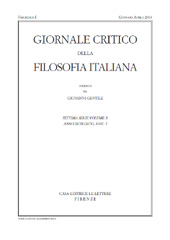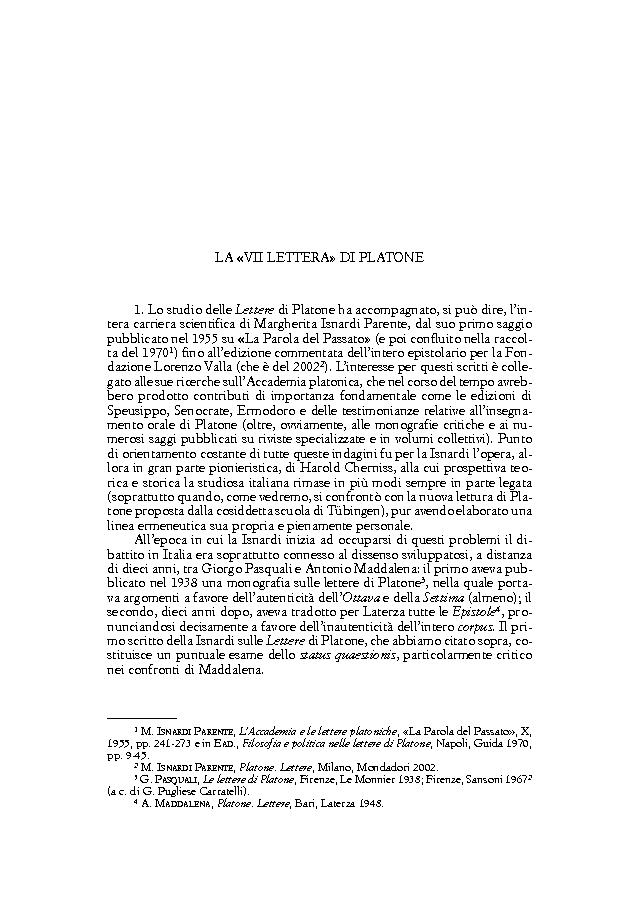La «VII lettera» di Platone
85-97 p.
La VII Lettera di Platone figura tra gli interessi scientifici di Margherita Isnardi Parente lungo tutto l'arco della sua carriera. Moderata fautrice della sua autenticità, non ha tuttavia mai ritenuto che la lettera avallasse l'interpretazione 'interaccademica' di Platone promossa da Krämer e Gaiser (che viceversa ha vivacemente combattuto con vari argomenti).Ma si è anche opposta ad ogni interpretazione scettica, o anche solo problematica, del cosiddetto excursus filosofico contenuto nella lettera, ritenendo invece che questo passo avvalorasse una interpretazione intuizionista, in senso rigorosamente razionalistico e nient'affatto misticheggiante, dell'epistemologia platonica: Platone sarebbe fautore, in altri termini, di una intellezione pura capace di superare le difficoltà del pensiero discorsivo. [Testo dell'editore].
Plato's Seventh Letter is one of the most significant interests of Margherita Isnardi Parente, throughout her scientific career. She was a moderate supporter of the authenticity of the Letter; nevertheless, she never held that the Letter could validate Plato's 'interacademic' interpretation raised by Krämer and Gaiser, that Isnardi Parente vigorously criticized thanks to several arguments. At the same time, the scholar opposed any sceptical or even problematic interpretation of the so-called philosophical excursus of the Letter: she believed that this passage supported an intuitionistic interpretation of Platonic epistemology in a strictly rationalistic – therefore, not at all mystical – sense. From this point of view, Plato would be, in other words, a supporter of a pure intellection, able to overcome the difficulties of discursive thought. [Publisher's text].
Fait partie de
Giornale critico della filosofia italiana : XCIII, 1, 2014-
Articles du même numéro (disponibles individuellement)
-
Informations
Code DOI : 10.1400/273103
ISSN: 2284-1474



